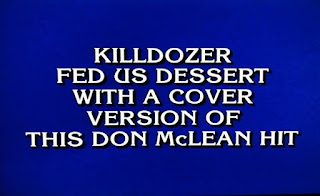One of the best books I've read in the last ten years is Patrick Lencioni's "The Five Dysfunctions of a Team." It's a "leadership fable" which means it's a fictitious story constructed to teach you a lesson. That very idea makes me cringe.
So why did I read it? A good friend recommended it. And this book is so good, I forgot about my prejudices against its structure and method. Mr. Lencioni, among other things, offers a truly insightful definition of "politics." Lencioni says, "Politics is when people choose their words and actions based on how they want others to react rather than based on what they really think."
That's a huge statement, for me it gets to the heart of what's wrong with politicians (telling you what they think will make you feel happy, sad, angry, etc.), but it also hits the nail on the head when we get to talking about regular people (non-"politicians") who tell you something they don't believe because it is what they think will get a desired reaction out of you.
I try to live an apolitical life, but like everyone, struggle from time to time. It's easy to tell people what they want to hear; very hard to tell them what you actually think. So I could tell you that you are very smart to get so many questions on Jeopardy right, but the apolitical thing to tell you is that you aren't smarter, Jeopardy is dumber.
Years ago when I watched Jeopardy, I felt dumb. Really dumb. I sat in amazement as contestants answered questions about subjects I didn't even realize existed. And I felt exhilaration when I actually knew an answer. But as the years have gone on, I've noticed that the questions have gotten easier and easier to answer. I'm not getting smarter. As a matter of fact, I seem to be getting dumber exponentially with each passing day as my now middle-aged brain dwindles.
I think the producers of the show have, for the sake of not making their television audience feel stupid (precisely what I treasured), made the questions substantially easier. I think they realized that more people would watch if the show made them feel good about themselves as opposed to bad about themselves. More viewers equals more advertisers, which means more revenue for the producers. If you doubt this at all, take the success of Wheel of Fortune as an example. This televised version of Hangman, is now in its 32nd year of its present incarnation. We're talking about a show where a woman touches monitors to make them light up; something that could easily be done remotely, but done here in an evening gown and high heels.
Jeopardy, which pretends to be the high road of game shows has actually lowered their standard as the years have passed. Take this question for instance:
What might be a somewhat difficult question about Don McLean's only real hit "American Pie" is made terrifically easy with the clue of "dessert." It's even easier (perhaps intentionally) if you read the question as "U.S. DESSERT."
A favorite clue that Jeopardy likes to throw in to an answer is "this Eiffel Tower city." For example: "This Eiffel Tower city was home to this Swiss painter and sculptor who was born in 1901." You don't have to know anything about art. This question is now a geography question, and a potentially difficult question about Alberto Giacometti is now a question my ten year old could probably answer.
Which leads me to my Sunday mornings. Sunday mornings for me are a big breakfast followed by Meet The Press at 10:00 and then This Week at 11:00. And just like the reason why I used to like to watch Jeopardy, I watch these shows because they make me feel stupid. Regardless of which commentators you side with as they debate the week's issues from politics, you can't deny that all of them are very educated. They make me feel stupid. I might not agree with all of them, but it's not a matter of them being uneducated about the issue.
Cue Donald Trump. This morning on Meet The Press, they interviewed Trump by phone and asked him about statements he made in his book from only a couple of years ago praising many persons who are now his competitors for president; the very people he now blasts as being terrifically unprepared for the Oval Office. Trump's response is what gave me a chuckle. He defended his previous praise of Hillary Clinton, Rand Paul, etc. as a requirement of him being a good businessman. He said that he wasn't going to say anything bad about them when he wrote the book because it wasn't good for his business. So he seems to be admitting that he was blowing smoke at these people to get their favor. Complimenting them so they would feel good and perhaps benefit him in his business dealings. That's exactly Patrick Lencioni's definition of being political, and something that should fly in the face of the 20% that support him because of his folksy straight talk and his outsider status as a "non-politician."
The other thing that struck me as funny during the segment on him, was a group of Trumpists who were interviewed together with regard to why they like Trump the candidate. A twenty-something male spoke up and said something to the effect of, "He's successful. I want to be successful like him." What's interesting to me about that perspective is the total lack of understanding of the fact that Trump has become "successful" by making others unsuccessful. It's the nature of competition; there has to be a winner and at least one loser.
Anyway, it all makes me laugh.
Subscribe to:
Post Comments (Atom)




Donald Trump is really a funny and amusing character in American political story. This picture is just ridiculous but amusing. I hope this book is just worth reading so far !
ReplyDelete